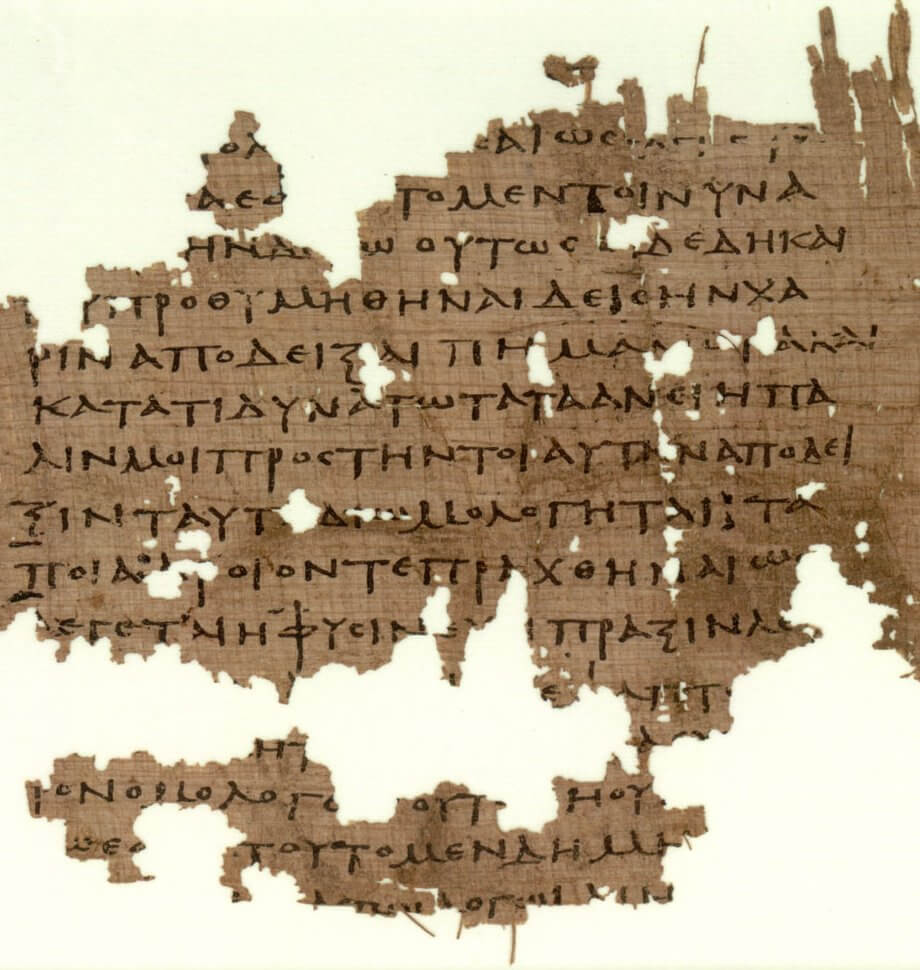The ancient Greeks pioneered, developed, and in fact, named many familiar genre of World literature: epic, lyric, and pastoral poetry, tragic and comic drama, prose history, philosophy, and the novel all have deep roots in the literature of ancient Greece. The Greeks did this despite not having adopted a writing system capable of recording these literary forms until relatively late in their cultural history. Alongside Latin, ancient Greek (sometimes called “Classical Greek”) is one of the professional Classicist’s most powerful tools for identifying and analyzing culturally significant texts, events, objects, and ideas. Homer’s Iliad and Odyssey, for instance, Sophocles’ Oedipus the King, Plato’s dialogues, the Hippocratic Oath, and Aristotle’s treatises on ethics, politics, and physics were all written originally in Greek over two thousand years ago. Our researchers and students use their understanding of the Greek language and its various dialects to further our understanding of these influential texts and of the ancient culture that produced them.
While our undergraduate Greek curriculum emphasizes extant works, which either have intrinsic literary interest or have exerted particular influences on later literature, it is important to note that ancient Greek literature is growing all the time. The discovery every year of new material texts in the forms of inscriptions, fragments of papyrus, and broken pottery adds details to our knowledge of Greek cultural history and daily life.

Related Faculty
- A. J. Korzeniewski
- Andrew Wein
- Christian Wildberg
- D. Mark Possanza
- Ellen Cole Lee
- Jacques A. Bromberg
- John Newell
- Marcie Persyn
- Nicholas F. Jones
- Sarah Brucia Breitenfeld
- Wesley B. Scott
Publications
- Aristóxeno de Tarento, Os Elementos de Harmonia (Aristoxenus of Tarentum, The Elements of Harmonics) [First Translation into Portuguese]
- ‘Which the Greeks Call…’: The Rhetoric of Code-Switching in De architectura 3.1
- “Never Bury My Bones Apart From Yours”: Iliad Reception in Xena: Warrior Princess
- Affective Entanglements: Shifting Attitudes Toward the Ancient Greek Body
- Stepmothers: The Enemy Within. An exploration of the hostile stepmothers in Euripides
- Marginalised Populations in the Ancient Greek World: The Bioarchaeology of the Other
- The comparative impact of Old English and Classical language on the poetics of modern fantasy
- Finding Ithaca, and Sense in Parmenides B1.3: The Homeric Meaning of Εἰδώς
- Fair to see, soon to fall: the classical heroine and Tolkien's "unmortal" women
- The Bankes Homer: a window into Homeric song
- Pax Olympica: The Rhetoric and Ideology of the Olympic Truce
- Pliny’s Telemacheia Epic and Exemplarity under Vesuvius
- The Poetics of Dialect in the Self-Epitaphs of Nossis and Leonidas of Tarentum
- Lovely Earth (Leonidas of Tarentum Anth. Pal. 7.440 = Gow/Page, HE 11)
- Infelix Dido vs. Δεινὴ Medea: Fate and the Puella Relicta Trope in Ancient Myth
- Aeschylus and the Cuban Counter-Revolution
- Medea, la Llorona, y la tragedia de las desplazadas
- Noh and Greek Tragedy
- Interview with Miyagi Satoshi
- Myth and Argument in Plato's Phaedo
- Greek Tragedy and the Socratic Tradition
- Peace through Sport: Modern Lessons from Ancient Sources
- Medea and La Llorona in the Gardens of World Literature
- A Sage on the Stage: Socrates and Athenian Old Comedy
- Homer, Odyssey 10.200: Man-eating or Man-slaying?
